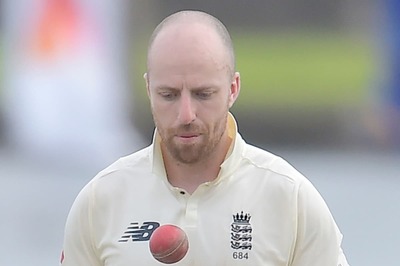
views
New York: Got the sniffles? The largest study of the popular herbal remedy echinacea finds it won't help you get better any sooner.
The study of more than 700 adults and children suggests the tiniest possible benefit - about a half-day shaved off a weeklong cold and slightly milder symptoms. But that could have occurred by chance.
For most people, the potential to get relief a few hours sooner probably isn't worth the trouble and cost of taking the supplement, researchers said.
With no cure for the common cold, Americans spend billions on over-the-counter pills, drops, sprays and other concoctions to battle their runny noses, scratchy throats and nagging coughs. Some turn to echinacea (ECK-in-AY'-shuh), a top seller marketed as a product that helps the immune system fight infections.
In the past, some studies found it did nothing to prevent or treat colds; others showed modest benefit. Research on echinacea, also known as purple coneflower, is hard to compare because there's more than one kind of plant, and different parts of it are used.
With government funding, Dr. Bruce Barrett and colleagues at the University of Wisconsin tackled the question again, using newspaper ads and posters to find volunteers with colds in the Madison, Wis., area.
The participants ages 12 to 80 were randomly assigned to get echinacea tablets, a dummy pill or no treatment at all. Those who got the herb took the equivalent of 10 grams of dried echinacea root the first day and 5 grams the next four days.
Twice a day, they graded their symptoms until their cold was gone.
From those scores, the researchers saw a trend toward shorter and slightly less severe colds for those taking echinacea compared to those who didn't. However, the results did not reach statistical significance, meaning they could have occurred by chance. There were no apparent side effects from the echinacea.
Barrett and other experts said the findings would probably be viewed as positive by echinacea supporters but as the "nail in the coffin" by critics.
"It's not a compelling result in either direction," said Mark Blumenthal, executive director of the American Botanical Council, which follows research on herbal products. He said Barrett is on the group's advisory board.
Blumenthal said the study was well designed, used a good quality product at a reasonable dosage and tested echinacea in a real-world setting, rather than giving colds to research volunteers.
The study's findings were released Monday by the Annals of Internal Medicine. The authors include the co-founder of the Australian company that provided the echinacea for the study, but he was not involved in the research.
It was funded by the National Center of Complementary and Alternative Medicine, part of the National Institutes of Health. The center, set up to test herbs and other alternative health remedies, has spent $6.8 million testing echinacea since 2002.
The center's director, Dr. Josephine Briggs, said there are no plans to support more human research on echinacea.
"I think what we're seeing is pretty clear. If there's a benefit of echinacea, it's very modest, Briggs said.
So what's a cold sufferer to do?
"There's nothing that's going to make it go away," said Dr. Ronald Turner, of the University of Virginia School of Medicine. He led another government-funded study of echinacea that had negative results.
Some over-the-counter medications ease the symptoms a bit, he said. Americans spent $5.3 billion on cold and cough remedies at major U.S. stores in the year ending Nov. 27, according to The Nielsen Co. (Cold and cough medicines are no longer recommended for children under 4.)
And don't go running to the doctor for antibiotics, said Dr. Ann Falsey of the University of Rochester Medical Center. Antibiotics don't work against cold viruses and can have side effects.
Rest, fluids, pain relievers and over-the-counter medications to relieve symptoms are generally recommended.
On Saturday, Kyle Cummings stood bewildered before a sea of products that filled an aisle at a drug store in New York's Pennsylvania Station. The 21-year-old New Yorker had a sore throat and stuffy nose.
"I don't know what to get," said Cummings, who blamed his cold on hunting for a second job without a winter coat.
He couldn't take anything that would make him drowsy while at work in customer service at a bank. He settled on a Robitussin product.
Minutes later, two sniffling 16-year-old classmates, Kelly Malico and Sietske Ruijgh from New York's Long Island, stopped for cough drops.
"There's nothing you can really do," shrugged Kelly, who blamed her friend for sharing her cold.
Another cold sufferer, Jay Jarutat, grabbed some Vicks VapoRub off the shelf at her doctor's suggestion. She had been sick for a week and had taken off a couple of days from her job at a recording studio.
"I don't really get that much rest," the 34-year-old said in a whisper because of laryngitis. "Rest, rest, rest, rest, and this is going to help."
By Monday, she was feeling better and back at work.
What do the pros do?
"I'm pretty old-fashioned. I put a warm sock around my throat, and I use honey and tea and lemon," said the government's Briggs.
Blumenthal of the Botanical Council takes echinacea and other herbs as well. "I hedge my bets," he said.
And Wisconsin's Barrett?
"I use ginger tea. It hasn't ever been proven in anyway whatsoever. But I like it."



















Comments
0 comment